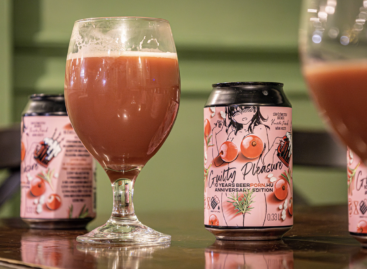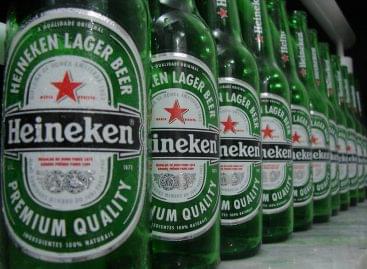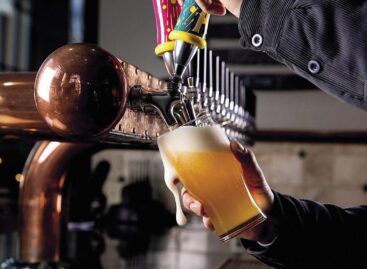Magazine: The beer market is on the mend, but full recovery will take more time

Dr. Sándor Kántor
director
Association of Hungarian Brewers
Sales data from the first 11 months of 2021 forecast that last year brought similar results in the beer market as the pandemic-ridden 2020. Dr Sándor Kántor, director of the Association of Hungarian Brewers told our magazine: HoReCa closures, cancelled major programmes and festivals, fewer tourists and colder months than the usual all had a negative effect on sales.

György Spiegel
marketing director
Borsodi Sörgyár
György Spiegel, marketing director of Borsodi Brewery Kft. informed that last year Borsodi’s sales increased in grocery retail in comparison with 2020, but the company’s beer volume sales stayed below the 2019 level. He is happy about the fact the Hungary’s beer culture keeps developing.

Ibolya Szabó
corporate affairs director
Dreher Breweries
For Dreher Breweries 2021 wasn’t the best year either, as bars and restaurants were closed for 4 months, and in the remaining 8 months the HoReCa sector’s sales performance was below the expected level – told Ibolya Szabó, corporate affairs director of Dreher Breweries. She reckons that beer sales will return to the 2019 level in 3-4 years’ time. To make things worse, aluminium prices have risen by 40-50 percent and cereals now cost 30 percent more than before.
Orsolya Mottl-Molnár, marketing and trade marketing director of HEINEKEN Hungária Breweries Zrt. said: although beer sales were lower in 2021 than in 2020, retail did well as sales grew in both volume and value in this channel.
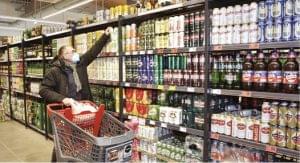
Retail beer sales have been on the rise again
Changes and challenges
Krisztina Antal, marketing manager of Pécsi Brewery Zrt. spoke to our magazine about their ingredient and raw material supply problems in 2021, which created a situation where sales couldn’t reach the targeted level either. Still, the brewery is optimistic about 2022, in spite of the fact that they calculate with a halt in the beer market’s development, due to the high inflation rate and the rapidly increasing ingredient and raw material prices.

Halász Bálint
kereskedelmi manager
Hedon Kézműves Sörfőzde
Bálint Halász, sales expert of Hedon Craft Brewery Kft. stressed that it was the amendment of the trade act – which entered into force on 1 August and was favourable for craft breweries – that had the biggest influence on the beer market in 2021. Thanks to the new rules, craft breweries can now be present in much more bars and restaurants than before (formerly major breweries were allowed to sign exclusive contracts with these places). Hedon has already acquired more than 100 new HoReCa partners due to the new regulations.
Growing consumer consciousness
Dr Sándor Kántor reported that the recent period showed: premium and super-premium beer sales can grow even in crisis periods, just liked flavoured alcohol-free product sales. It is a special characteristic of the Hungarian beer market that sales in can format have a market share above 70 percent.

Orsolya Mottl-Molnár
marketing and trade marketing director
HEINEKEN Hungária
Orsolya Mottl-Molnár called our attention to growing consumer consciousness in the beer market, as shoppers show bigger demand for high quality products and they want to know what is in their beer and how it was made. HEINEKEN Hungária is proud of the fact that they were the first to stop selling beer in PET bottles, reducing our environment’s plastic burden by nearly 200 tonnes a year.
Ibolya Szabó talked to our magazine about Dreher’s many new innovations. The brewery dares to experiment and to enter new segments or to roll out new flavours. She revealed that consumer demand is on the rise for alcohol-free products. In accordance with this trend, Dreher Breweries aims to turn 20 percent of its product portfolio alcohol-free by 2030.
Bálint Halász told: Hedon Craft Brewery Kft.’s experience is that a large part of former commercial beer drinkers have switched to craft beers, and at the same time more and more brewing companies are experimenting with dessert beers.
Sustainability is becoming more important

Krisztina Antal
marketing manager
Pécsi Brewery
Pécsi Brewery Zrt.’s experts have experienced increased demand for beers in keg. In sales they see the biggest change in the growth produced by the online channel. Krisztina Antal told that the brewing company has its own online shop. She spoke about the hegemony of lagers and the dominance of sour cherry among flavoured beers. 2022 has brought a change: the brewery’s sour cherry beer is available under the Pécsi Prémium brand now.
György Spiegel added that consumers pay increased attention to their calorie intake, quality product ingredients and natural ingredients. This is why the hard seltzer category is so successful in the international market. Borsodi Breweries Kft. is stepping up its sustainability efforts as well – in line with the latest consumer requirements.
Innovation work never stops
Ibolya Szabó told our magazine that Dreher Breweries’ development work seeks to reduce the burden on the environment, by increasing the brewing company’s energy efficiency and switching to cleaner sources of energy. In 2021 they launched Viper hard seltzer in lime and cranberry flavours, in 0.33-litre aluminium can and glass bottle packaging. In the spring the Kőbányai brand rolled out a 1.5 percent abv alcohol grapefruit radler and an alcohol-free lemon product. The summer brought the debut of Dreher Blueberry in 0.5-litre aluminium can packaging. At the end of the summer the brewing company built a Beer Workshop, which focuses on creative recipes and is the home of a new Hungarian brand.
In 2021 Borsodi Breweries Kft. added Borsodi Cherry Ale and Borsodi Ginger Ale to its portfolio, plus they launched the limited edition Borsodi Tropical Ale too. A pear-apple flavour came out under the Borsodi Friss brand and the brewery put Staropramen Praha on the market. They stopped selling Borsodi lager in PET bottles and from 2022 the brewery is the Hungarian distributor of the Guinness, Kilkenny and Hop House 13 Lager brands – told György Spiegel.
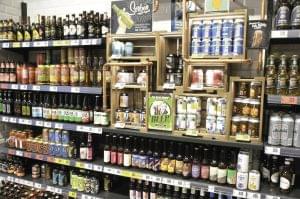
The pre-COVID development in Hungarian beer culture started to continues
Exciting products
HEINEKEN has always led the way in innovation, for instance the brewery was the first to come out with an alcohol-free radler with Gösser Natur Zitrone and created Soproni Óvatos Duhaj IPA, Hungary’s first top-fermented beer made by a major brewing company – said Orsolya Mottl-Molnár. In 2021 Soproni Óvatos Duhaj Hoplager and Raspberry Ale followed. What is more, from the end of last year Soproni1895 is brewed with Hungarian hop only. 2022 will bring more exciting products to beer lovers – especially in the premium segment.
Pécsi Brewery Zrt. focuses on technological development in 2022, but they also plan to launch new top-fermented beers. Krisztina Antal said: one of their biggest success stories in 2021 was the relaunch of Pácsi Radler. Gluten-free beers are very important in the company’s portfolio – new products might be introduced in this segment too. A fourth radler flavour is also planned and Pécsi Prémium Sour Cherry will be available in keg version once again.

Csaba Pető
head brewer
Hedon Craft Brewery
Hedon Craft Brewery Kft.’s experts trust 100 percent recycled packaging and are keeping the brewing company’s plastic use around zero percent. They are also calling shopper attention to the importance of selective waste collection; the brewery also manages production waste selectively. Head brewer Csaba Pető added: they build their product innovation work on consumer feedback. //
We don’t really mind if beer is not that bitter


Krisztina Bodnár
business development
manager
GfK
At the end of November 2021 data showed that in one year households had spent 5.5 percent more on beer than in the previous 12-month period. 77 percent of the beer budgets of households went to lager type beers, but radler sales are growing year after year – they already have a market share above 12 percent (in value). Another big winner was fruit-flavoured beers, sales of which increased above the average. It seems that more and more shoppers like to try sweeter beer types too.
More than half of households buy lager beer in discount supermarkets and radlers also have a penetration bigger than 30 percent in this channel. Private label beers are increasingly popular, for instance Lidl’s Argus brand upped its penetration level by 23 percent last year – currently it has the 4th biggest penetration in the Hungarian beer market. This year is going to show whether further growth is possible in the price-sensitive domestic beer market with premium special products, e.g. ales, fruit-flavoured beers and wheat beers. The COVID-19 pandemic called attention to the importance of products made locally. //
Related news
Related news
40 secure jobs, sustainable solutions – new BURGER KING® in Csepel
🎧 Hallgasd a cikket: Lejátszás Szünet Folytatás Leállítás Nyelv: Auto…
Read more >


